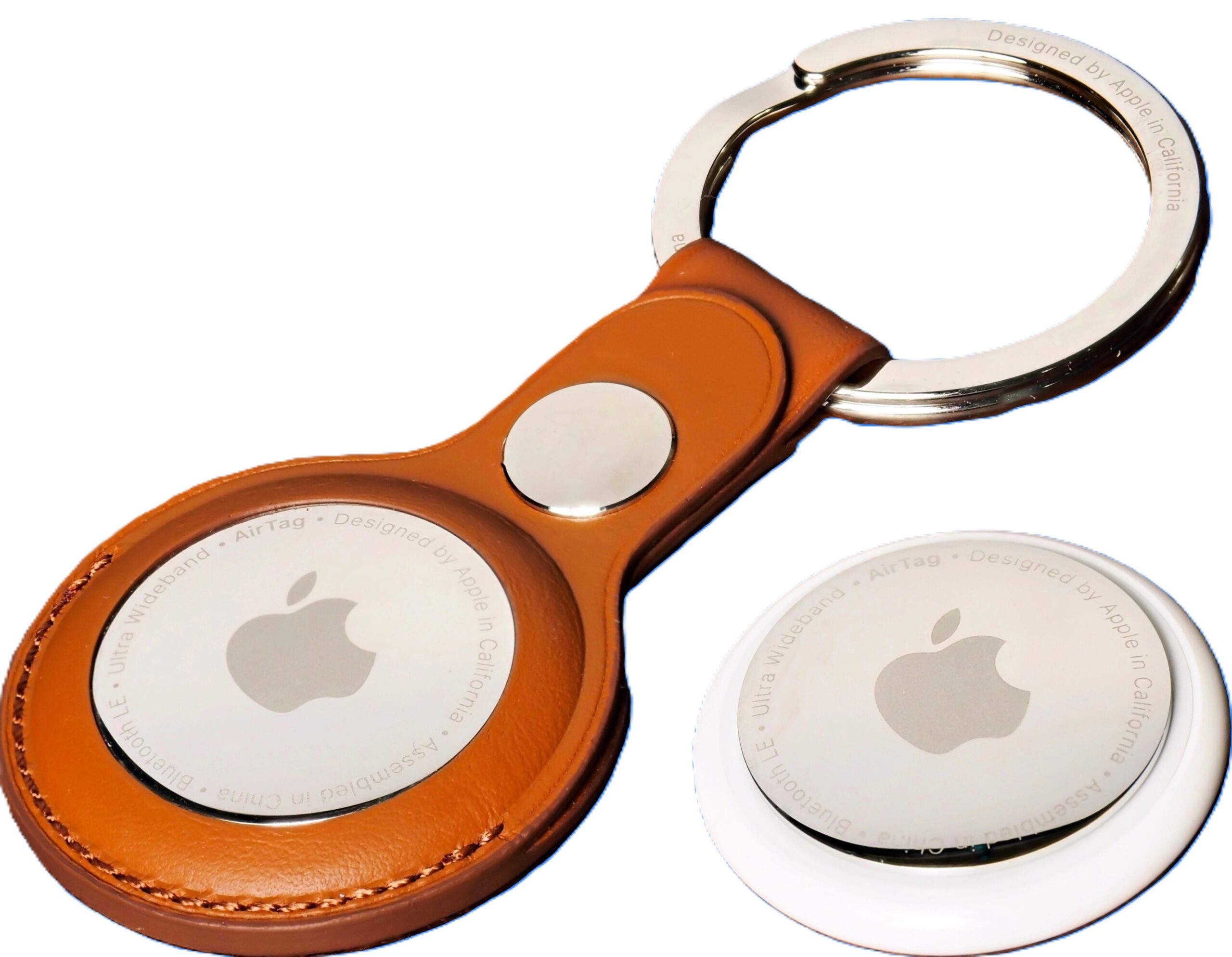Apple AirTags are small, coin-sized tracking devices designed to help you locate everyday items. Introduced in 2021, they integrate seamlessly with Apple’s “Find My” ecosystem, offering a relatively simple and cost-effective way to keep tabs on your belongings.

What are Apple AirTags?
An AirTag is a small, disc-shaped gadget developed by Apple. It’s essentially a Bluetooth tracker, not a GPS device itself. It contains a speaker, an accelerometer, an NFC chip, and Apple’s U1 chip for Ultra Wideband technology (more on that below). It runs on a user-replaceable CR2032 coin cell battery, typically lasting over a year.
How Do They Work?
AirTags leverage the vast global network of Apple devices that make up the “Find My” network.
- Bluetooth Signal: Your AirTag constantly emits a secure, anonymous Bluetooth signal.
- Find My Network Detection: When any Apple device (iPhone, iPad, Mac) running iOS 14.5 or later comes within Bluetooth range of your AirTag, it anonymously detects this signal.
- Location Transmission: That nearby Apple device then securely and anonymously sends your AirTag’s location data to iCloud.
- Find My App: You can then open the “Find My” app on your iPhone, iPad, or Mac and see your AirTag’s location on a map.
For iPhones 11 and newer, which have Apple’s U1 Ultra Wideband chip, there’s a feature called Precision Finding. This provides visual, haptic, and audio feedback, guiding you with an arrow and distance markers directly to your AirTag when it’s nearby.
If your AirTag is found by someone, they can tap it with an NFC-capable smartphone (including Android phones), which will direct them to a website with your contact information if you’ve put the AirTag in Lost Mode.
What Are They Good For?
AirTags excel at tracking personal items you might frequently misplace or want to keep an eye on, especially in areas with a high density of Apple users.
- Keys: Attach an AirTag to your keyring to quickly find misplaced keys around the house or office.
- Wallets/Purses: Slip one into your wallet or purse.
- Backpacks/Bags: Ideal for school bags, gym bags, or everyday carry bags.
- Luggage: Highly popular for tracking checked luggage during air travel. You can often see your bag moving through the airport system, sometimes even before the airline’s own tracking updates.
- Jackets/Coats: Pin one inside a coat you might leave behind.
- Camera Gear/Electronics Cases: Keep track of valuable equipment.
- Bicycles: Discreetly place one on your bike for potential recovery if stolen (though it’s not a primary anti-theft device).
- Finding Your Parked Car: If you forget where you parked in a large car park, an AirTag in your car can guide you back.
Pros and Cons of Apple AirTags
Pros:
- Affordable: Relatively inexpensive, especially when purchased in a 4-pack.
- No Subscription: Unlike many GPS trackers, there are no ongoing monthly fees.
- Excellent Battery Life: A standard, user-replaceable CR2032 battery lasts over a year.
- Vast Network: Leverages the enormous global “Find My” network of billions of active Apple devices, making it very effective in populated areas.
- Precision Finding: For newer iPhones, the UWB chip provides highly accurate directional finding when nearby.
- Easy Setup: Simple one-tap pairing with your Apple ID.
- Durable & Water Resistant: IP67 rating means it can withstand splashes and brief submersion.
- Privacy Features: Designed with anti-stalking measures, such as alerts on iPhones if an unknown AirTag is consistently traveling with you, and the AirTag itself will eventually play a sound if separated from its owner for a long time.
Cons:
- Apple Ecosystem Dependent: Requires an iPhone, iPad, or Mac to set up and track. Not natively compatible with Android (though Android phones can detect an AirTag in Lost Mode via NFC and receive unwanted tracking alerts).
- Limited Direct Range: Its primary Bluetooth range is limited. If an item is lost in a remote area without other Apple devices nearby, you only get the last known location. It’s not a true real-time GPS tracker.
- Not Ideal for Pets (Officially): Apple doesn’t endorse AirTags for pets due to safety concerns (e.g., choking hazard, unintended tracking). While many people use them on pets, a dedicated GPS pet tracker is better for tracking pets that roam widely.
- No Attachment Hole: The AirTag itself lacks a built-in hole for keyrings, requiring the purchase of additional accessories (loops, keyrings) for attachment, adding to the cost.
- Privacy Concerns (Misuse): Despite Apple’s efforts, AirTags can still be misused for unwanted tracking, which is illegal and unethical.
Apple AirTags are a strong choice for anyone invested in the Apple ecosystem who wants a simple, effective, and budget-friendly way to keep track of everyday items. They are best for “finding” rather than continuous “tracking” over vast distances.